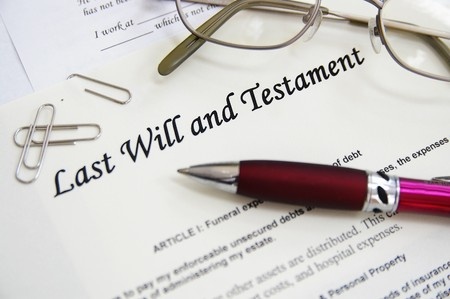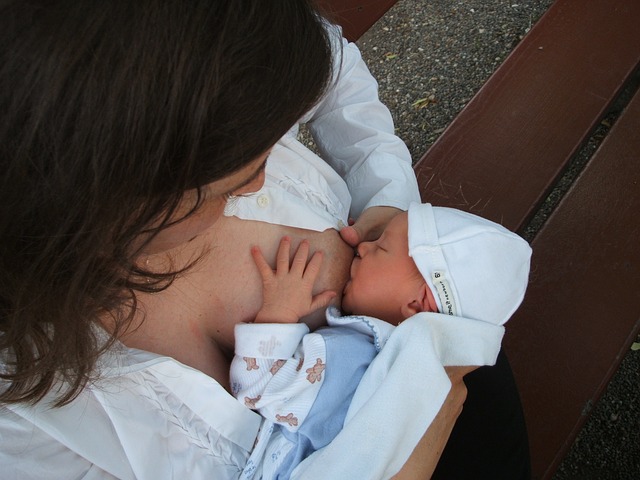Death. No one likes to think about it much less talk about it. However, avoiding the topic will not change the fact that one day we will have to leave this world.
As parents, we all hope that our children will get to outlive us and lead a fulfilling, lasting and healthy life. But what happens if we were to pass away prematurely when they are still young? How can we ensure their financial security even after we are gone?

We spoke to two experts Ernest Tan, Certified Financial Planner, Master Money Coach, Author of Raising Financially Savvy Kids and Winston Tan Ooi Sim, Chartered Financial Consultant for more advice.
What happens when one dies?
Winston: Under Singapore Law, when a death occurs, a person is deemed to pass away with (Testate) or without a Will (Intestate). If there is a Will, the estate will be distributed via the instructions of the Will. If there is no Will, the estate will be distributed according to the Intestacy Law.
What happens if my children/beneficiaries are minors (less than 18 years old)?
Winston: There are two options for this.
A. There is a Will, the parent may stipulate a trustee to hold the cash till the beneficiaries are of vesting age.
B. If there is no Will, the public trustee will just appoint a next of kin as a trustee. (Which may not be a trusted kin of the deceased family).
Do note that the executor(s) of a Will are typically taken to be the trustee(s) of monies as well, unless otherwise specified in the Will.
How do I go about writing a Will? Can I write it on my own?

Ernest: Yes you can! The most common misconception is that you need a lawyer to write one. If you do not have a complicated family relationship such as a step family, or if you did not remarry, I would suggest for parents to write one on their own. You can refer to a sample Will.
After doing so, you may seek a lawyer to vet through and check for you as you may miss out on some legal technicalities in the Will.
Winston: I would advise parents to consult a lawyer to arrange for a Will as it may end up as not legal in the eyes of the law.
How much will it cost me to get a lawyer to do a Will?
Ernest: To draft a simple Will costs around $300 to $400. If you had already written your own and would like a lawyer to vet through, that will cost around $50 – $60.
I don’t have much money or assets in my possession. So why should I write a Will?
Ernest: On the country to this belief, it is actually more important for people who think they have little savings or no assets to write their Will. In the event that you pass away and do not have a one, your family would have to go through a range of legal procedures according to the that is time consuming and costly, to ascertain you are the relative of the deceased. This will incur legal and other miscellaneous fees. For example, there are fees charged by the Public Trustee for the administration of un-nominated CPF monies.
Furthermore, it will be long process before the relevant banks and organisations approve. Some of my clients have given up and decided to leave the money frozen in the deceased bank account as it takes up to much of effort and money.
Who can be my witnesses for my Will?
TNAP: According to the The Law Society of Singapore, the signing of your Will must be witnessed by two persons and they must both be present at the same time. Your witnesses can neither be beneficiaries under your Will, nor can they be the husband or wife of any of the beneficiaries.
Can all my assets be included in my will?

TNAP: Not all your assets can be distributed in your will. The following assets that are not included in your Will are:
- Money in your Central Provident Fund (CPF)
- Property held in joint tenancy is (the surviving owner has the legal right to take full possession)
- Cash in joint savings accounts
You may put your insurance policies in the will.
However, if the beneficiaries of an insurance policy were nominated before the will, and the beneficiaries are different from the will, there will be a problem when it comes to estate distribution. Hence, if a person wants to include insurance policies in his/her will, please do ensure that all previous nominations of beneficiaries are revoked.
So what will happen to my CPF monies after I die?
TNAP: According to the CBP Board, if you have made a nomination under the CPF Act, your nominee shall be entitled to the funds in your CPF account regardless of what is stated in your Will. If you have not made a nomination, your funds will be distributed under the law in accordance with the Intestate Succession Act.
Is it necessary to make a CPF nomination?
TNAP: It is not a requirement for you to do so. The CPF Board states if you do not have a CPF nomination, your CPF savings will be distributed by the Public Trustee to your family members according to the intestacy law or the Certificate of Inheritance (for Muslims).
A Will does not cover the distribution of CPF savings after death. If you wish to divide your CPF savings according to your wishes (e.g. mother – 50%, brother – 20%, niece – 10%) and want to nominate four persons, the CPF board encourages citizens to make a nomination.
For singles, do note that if you get married after making a nomination, your nomination made before marriage is automatically cancelled.
What will happen to my insurance policies?
TNAP: As for your insurance policies, this will depend if you have appointed a beneficiary upon your premature departure and it also depends on what policies you buy. Different policies have different terms and conditions.
NTUC Income shared with TNAP that review late death claim submission (with conditions). In the event a policyholder passes away, relevant renewal notice/invitation will usually be sent to the policyholder’s (deceased) last known address one or two months before policy renewal date.
There will also be adequate reminder should they not receive any payment. If no payments are received by them upon expiry of grace period (varies with policy type), the policy will not be renewed, or lapsed.
Winston: In most circumstances, lawyers or legal representatives appointed by the deceased family members will usually write to all major life insurers to check if the deceased has any policies with the insurer.
What happens if both me and my spouse pass away at the same time?
Winston: If both husband and wife were to pass away at the same time, e.g. in an airplane accident, and the time of death for each individual cannot be determined, the older person is typically deemed to pass away first. And his or her Will is deemed to have taken effect (unless otherwise stated in it). The provisions have to be made while a person is healthy and of sound mind, so as to ensure the estate of the deceased is distributed successfully to the desired dependents.
What can I do to ensure matters are sorted out in the event of an unforeseen episode such a coma?
Winston: Parents may choose to sign up for Lasting Power of Attorney (LPA). LPA is a legal document which allows a person who is at least 21 years of age (‘donor’), to voluntarily appoint one or more persons (‘donee(s)’), to make decisions and act on his behalf as his proxy decision maker if he should lose mental capacity one day. A donee(s) can be appointed to act in two broad areas: personal welfare as well as property & affairs matters.
In layman, it means “I give another person the right to act on my behalf should I lose mental capacity”. This can be revoked anytime as long as the parent is alive and of sound mind. It will lose effect once the person passes away (where the will and intestacy law comes in). Unlike a will, LPA has to be done through a lawyer.
How can I make a lasting power of attorney?
TNAP: You can do so on the Public Guardian website.
Here’s a video on how to make an LPA by MSF Singapore.
If you find this article useful, do click Like and Share at the bottom of the post, thank you.
Like what you see here? Get parenting tips and stories straight to your inbox! Join our mailing list here.





















































